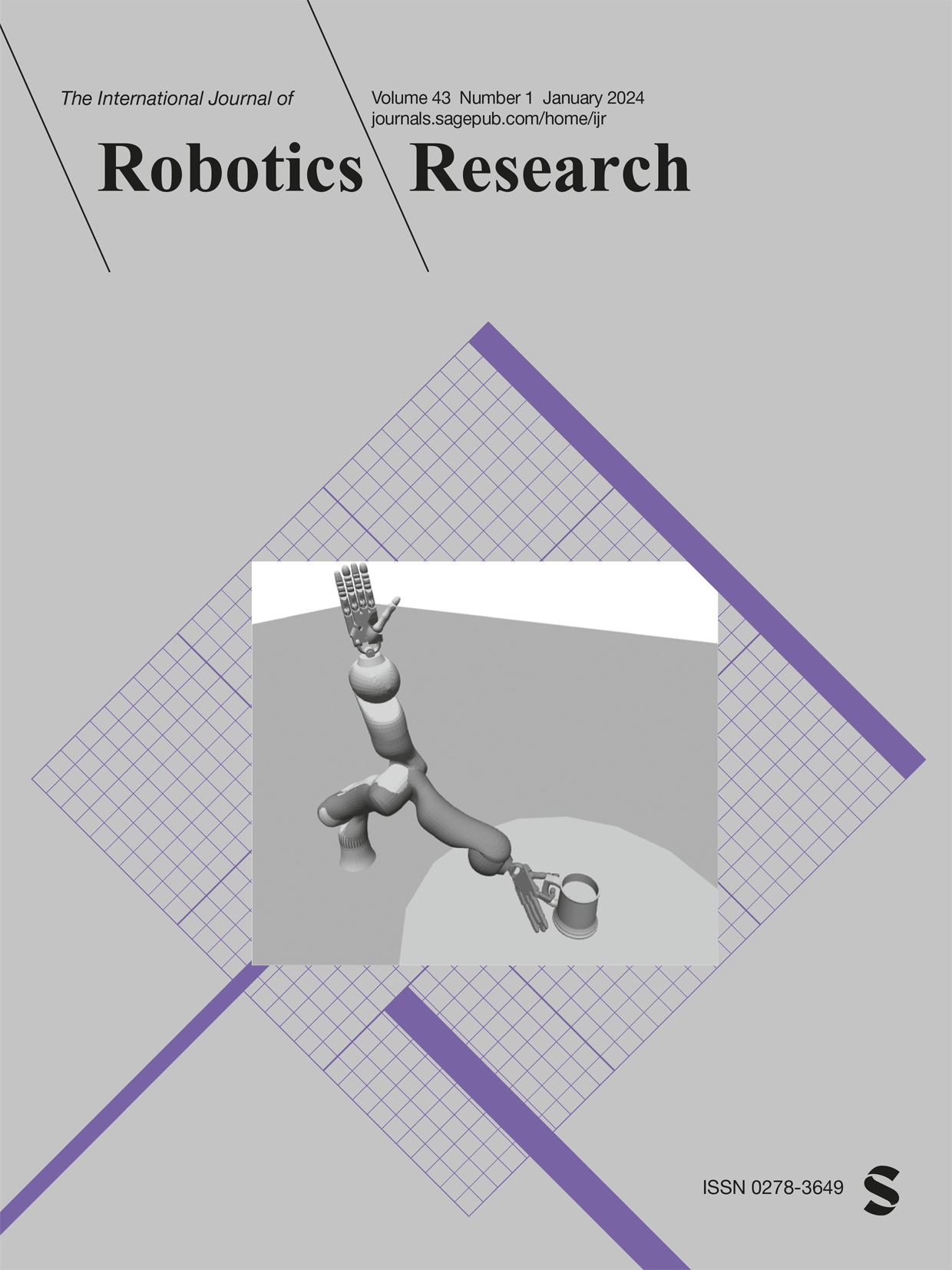Alternating direction method of multipliers-based distributed control for distributed manipulation by shaping physical force fields
IF 5
1区 计算机科学
Q1 ROBOTICS
引用次数: 1
Abstract
This paper proposes an algorithm for decomposing and possibly distributing an optimization problem that naturally emerges in distributed manipulation by shaping physical force fields through actuators distributed in space (arrays of actuators). One or several manipulated objects located in this field can “feel the force” and move simultaneously and independently. The control system has to produce commands for all actuators so that desired forces are developed at several prescribed places. This can be formulated as an optimization problem that has to be solved in every sampling period. Exploiting the structure of the optimization problem is crucial for platforms with many actuators and many manipulated objects, hence the goal of decomposing the huge optimization problem into several subproblems. Furthermore, if the platform is composed of interconnected actuator modules with computational capabilities, the decomposition can give guidance for the distribution of the computation to the modules. We propose an algorithm for decomposing/distributing the optimization problem using Alternating Direction Method of Multipliers (ADMM). The proposed algorithm is shown to converge to modest accuracy for various distributed platforms in a few iterations. We demonstrate our algorithm through numerical experiments corresponding to three physical experimental platforms for distributed manipulation using electric, magnetic, and pressure fields. Furthermore, we deploy and test it on real experimental platforms for distributed manipulation using an array of solenoids and ultrasonic transducers.基于乘法器的物理力场成形分布式操作交替方向控制方法
本文提出了一种算法,通过分布在空间中的执行器(执行器阵列)塑造物理力场,对分布式操作中自然出现的优化问题进行分解和可能分布。位于该场中的一个或几个被操纵的物体可以“感受到力”并同时独立地移动。控制系统必须对所有执行器发出指令,以便在几个规定的地方产生所需的力。这可以被表述为必须在每个采样周期内解决的优化问题。对于具有多个执行机构和多个被操纵对象的平台,利用优化问题的结构是至关重要的,因此目标是将庞大的优化问题分解为几个子问题。此外,如果平台由具有计算能力的相互连接的执行器模块组成,则分解可以指导计算分配到模块上。提出了一种利用乘法器交替方向法(ADMM)分解/分配优化问题的算法。结果表明,该算法在不同的分布式平台上迭代次数少,收敛精度适中。我们通过与三个物理实验平台相对应的数值实验来证明我们的算法,这些实验平台使用电场、磁场和压力场进行分布式操作。此外,我们在真实的实验平台上部署和测试它,使用一系列螺线管和超声波换能器进行分布式操作。
本文章由计算机程序翻译,如有差异,请以英文原文为准。
求助全文
约1分钟内获得全文
求助全文
来源期刊
CiteScore
22.20
自引率
0.00%
发文量
34
审稿时长
6-12 weeks
期刊介绍:
The International Journal of Robotics Research (IJRR) has been a leading peer-reviewed publication in the field for over two decades. It holds the distinction of being the first scholarly journal dedicated to robotics research.
IJRR presents cutting-edge and thought-provoking original research papers, articles, and reviews that delve into groundbreaking trends, technical advancements, and theoretical developments in robotics. Renowned scholars and practitioners contribute to its content, offering their expertise and insights. This journal covers a wide range of topics, going beyond narrow technical advancements to encompass various aspects of robotics.
The primary aim of IJRR is to publish work that has lasting value for the scientific and technological advancement of the field. Only original, robust, and practical research that can serve as a foundation for further progress is considered for publication. The focus is on producing content that will remain valuable and relevant over time.
In summary, IJRR stands as a prestigious publication that drives innovation and knowledge in robotics research.

 求助内容:
求助内容: 应助结果提醒方式:
应助结果提醒方式:


